The Ethics of Visiting an African Tribe: What You Need to Know
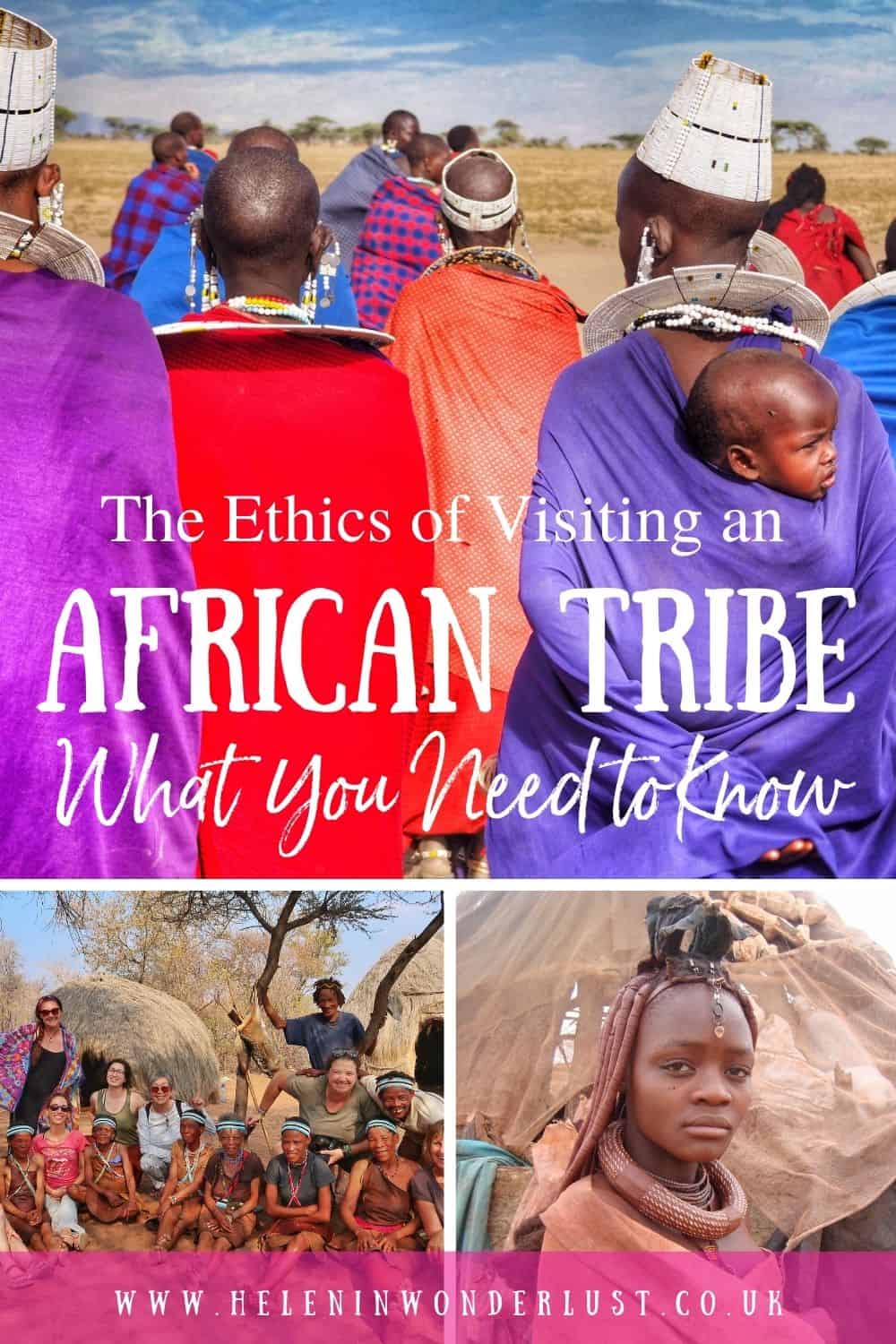 When I first decided to travel to Africa, visiting an African tribe was one of the main things I really wanted to do.
For as long as I can remember, I’ve been interested in different cultures, social dynamics, traditional customs, and folklore – even before I really knew what any of those things really were. Anthropology fascinates me.
My interest in people and places got a bit more serious when the TV series, ‘Tribe’ came into my life in 2005. In fact, it was Bruce Parry and his work that inspired me to travel to Africa in the first place.
If you haven’t seen it, Tribe is a documentary series by explorer Bruce Parry. For around a month or so, Bruce goes to live with indigenous peoples and becomes ‘one of the tribe’. Living exactly as they live, not trying to change anything or judge, he simply goes to learn and gain insight into their cultures. The tribes he visits are usually quite remote but have some contact with the outside world.
When I finally went to Africa in 2009, I visited a number of tribes. Some experiences were amazing, and some were… not so great and left me with an uncomfortable feeling about the whole experience.
When I first decided to travel to Africa, visiting an African tribe was one of the main things I really wanted to do.
For as long as I can remember, I’ve been interested in different cultures, social dynamics, traditional customs, and folklore – even before I really knew what any of those things really were. Anthropology fascinates me.
My interest in people and places got a bit more serious when the TV series, ‘Tribe’ came into my life in 2005. In fact, it was Bruce Parry and his work that inspired me to travel to Africa in the first place.
If you haven’t seen it, Tribe is a documentary series by explorer Bruce Parry. For around a month or so, Bruce goes to live with indigenous peoples and becomes ‘one of the tribe’. Living exactly as they live, not trying to change anything or judge, he simply goes to learn and gain insight into their cultures. The tribes he visits are usually quite remote but have some contact with the outside world.
When I finally went to Africa in 2009, I visited a number of tribes. Some experiences were amazing, and some were… not so great and left me with an uncomfortable feeling about the whole experience.
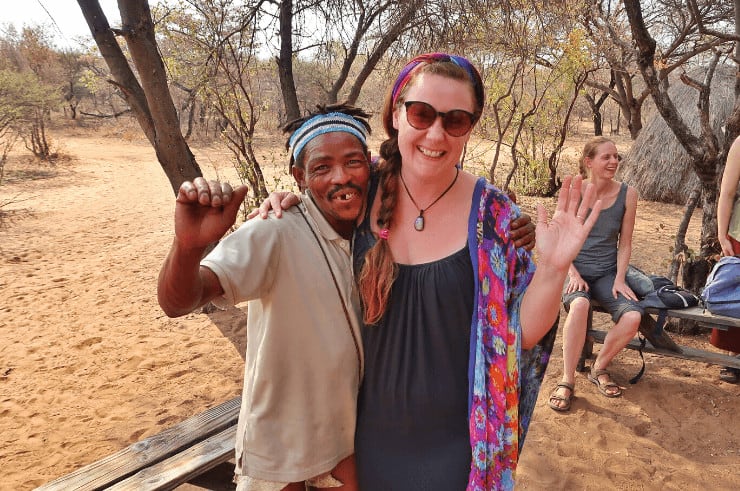 In the last 11 years of Africa travel, I’ve visited many African tribes, had a lot of incredible experiences and have become good friends with a number of tribal people in various different countries.
But there are a few things I wish I’d known about the ethics of visiting a tribe before I went travelling.
As human beings, we are curious by nature. For me, visiting a tribal community is usually an interesting and humbling experience. To meet people, to learn is the main reason I travel.
But there’s a debate as to whether tribal visits are ethical or exploitative and whether tribal cultures are suffering due to western influences. The words, ‘voyeuristic’ and ‘human safari‘ are often used in relation to visiting tribal people.
In this post, I’m not talking about visits to tribes that have little or no contact with the outside world, because that brings about a whole different set of issues, too numerous to go into here.
I’m talking about tribes that have invited tourists into their villages, like the Maasai in Kenya/Tanzania or the Himba in Nambia.
In the last 11 years of Africa travel, I’ve visited many African tribes, had a lot of incredible experiences and have become good friends with a number of tribal people in various different countries.
But there are a few things I wish I’d known about the ethics of visiting a tribe before I went travelling.
As human beings, we are curious by nature. For me, visiting a tribal community is usually an interesting and humbling experience. To meet people, to learn is the main reason I travel.
But there’s a debate as to whether tribal visits are ethical or exploitative and whether tribal cultures are suffering due to western influences. The words, ‘voyeuristic’ and ‘human safari‘ are often used in relation to visiting tribal people.
In this post, I’m not talking about visits to tribes that have little or no contact with the outside world, because that brings about a whole different set of issues, too numerous to go into here.
I’m talking about tribes that have invited tourists into their villages, like the Maasai in Kenya/Tanzania or the Himba in Nambia.
Other Africa posts you might enjoy…
- Cultural Appropriation vs Cultural Appreciation & Africa Travel
- The Best Places in Africa to See Elephants
- My Top Africa Travel Tips (After 11 Years of Travelling the Continent)
- The 25 Best Places in Africa for Solo Travellers
- My Complete Africa Packing List (Plus FREE Africa Packing Checklist)
- 16 of Africa’s Most Incredible Hiking Destinations
- Solo Travel in Africa vs. Taking a Group Tour
- Do I Need a Yellow Fever Certificate to Travel to Africa?
- Backpacking Africa: 39 Things You Need To Know Before You Go
- How To Plan Your Dream Trip To Africa (in 18 easy steps)
- The Beginner’s Guide to Backpacking East & Southern Africa
Please Note: Some of the links in this post are affiliate links, which will earn me a small commission at no extra cost to you. Affiliate sales help with the running costs of this site, so thank you for your support!
The Ethics of Visiting an African Tribe: What You Need To Know
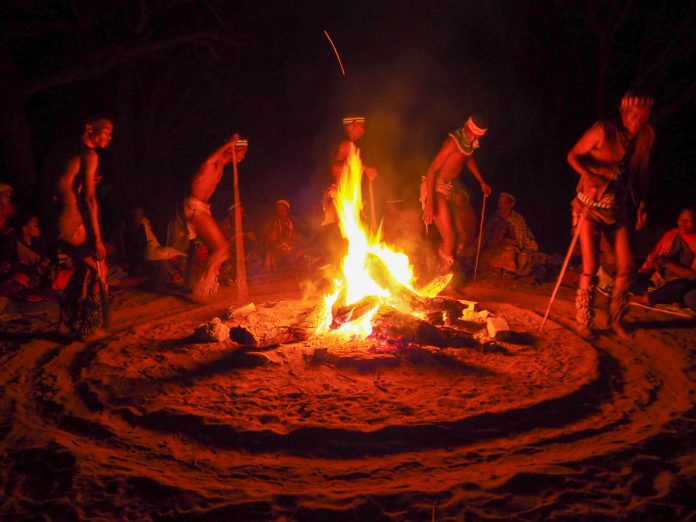
Is tourism ruining cultures? Or helping them?
I remember being taken to a Maasai village in the Ngorongoro Conservation Area as part of an organised tour. When we arrived, it all just felt very staged. The visit started with traditional singing and dancing. I could tell that the villagers were just going through the motions and didn’t really want us there. Once inside, we were split into groups of two and assigned a male Maasai guide. We were shown around their homes and taken to the village school. It was past 5pm when we arrived, yet there were lots of small children sat at desks, who recited numbers and words in English from a blackboard for us. It was all for show. These kids had no comprehension of what they were saying and there was no reason for them to be in school at that time.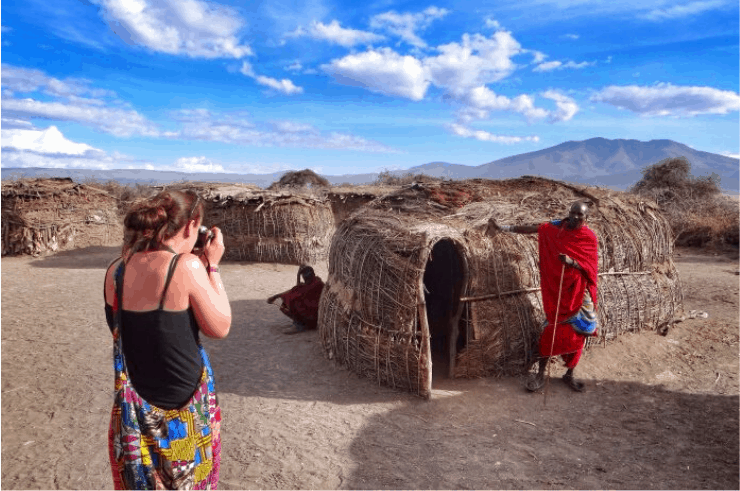 As we left, we were asked for ‘donations’ for the school.
At the centre of the village lay a circle of market stalls, each run by a different lady. Our guide was very insistent that we just stayed at the specific stall he showed us to and was reluctant to let us shop around. But I wandered off anyway.
I didn’t really want to buy anything but our guide was very pushy and I ended up picking up a couple of beaded Christmas ornaments and a bowl. We negotiated a price with him, as the lady didn’t speak English and I went to get some money from the car.
Our guide followed me out and tried to make me give him the money by the car. But as I was still undecided, I walked back in without handing over the cash. After another look around, I stuck with my selected items and gave the money to our guide, in front of the lady who owned the shop.
As we left, we were asked for ‘donations’ for the school.
At the centre of the village lay a circle of market stalls, each run by a different lady. Our guide was very insistent that we just stayed at the specific stall he showed us to and was reluctant to let us shop around. But I wandered off anyway.
I didn’t really want to buy anything but our guide was very pushy and I ended up picking up a couple of beaded Christmas ornaments and a bowl. We negotiated a price with him, as the lady didn’t speak English and I went to get some money from the car.
Our guide followed me out and tried to make me give him the money by the car. But as I was still undecided, I walked back in without handing over the cash. After another look around, I stuck with my selected items and gave the money to our guide, in front of the lady who owned the shop.
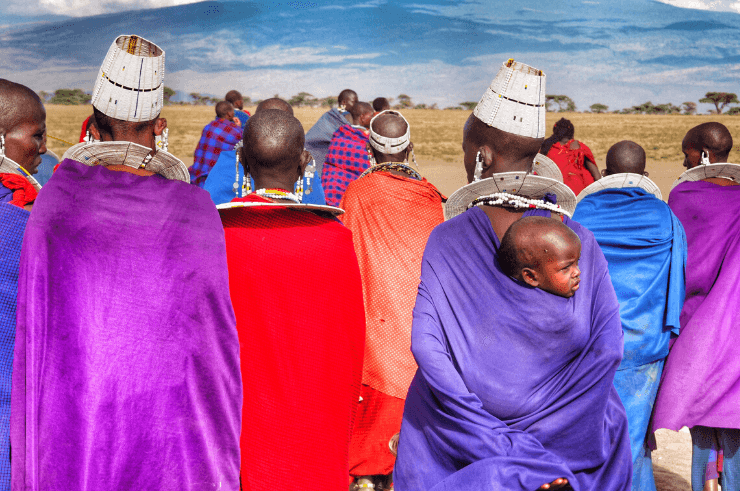 She and the guide started to argue. I then understood why he wanted me to give him the money privately outside. He’d obviously decided to take a bigger commission than she was aware of.
At one point in the visit, as we were walking into the village, I asked one of the young men “You don’t really want us here do you?”
“No.” Was his reply.
Thankfully, this wasn’t my first visit to a tribe. Or it may well have been my last. But overall, my positive experiences of visiting a tribe have outweighed the bad.
When in the Masai Mara, I often hang out with my Maasai friends in their village and homes, chatting, drinking masala tea and eating chapati. I’ve known them for years and on one of my recent Kenya & Tanzania tours, we took the group to a Maasai 21st birthday party and we partied in the village late into the night.
She and the guide started to argue. I then understood why he wanted me to give him the money privately outside. He’d obviously decided to take a bigger commission than she was aware of.
At one point in the visit, as we were walking into the village, I asked one of the young men “You don’t really want us here do you?”
“No.” Was his reply.
Thankfully, this wasn’t my first visit to a tribe. Or it may well have been my last. But overall, my positive experiences of visiting a tribe have outweighed the bad.
When in the Masai Mara, I often hang out with my Maasai friends in their village and homes, chatting, drinking masala tea and eating chapati. I’ve known them for years and on one of my recent Kenya & Tanzania tours, we took the group to a Maasai 21st birthday party and we partied in the village late into the night.
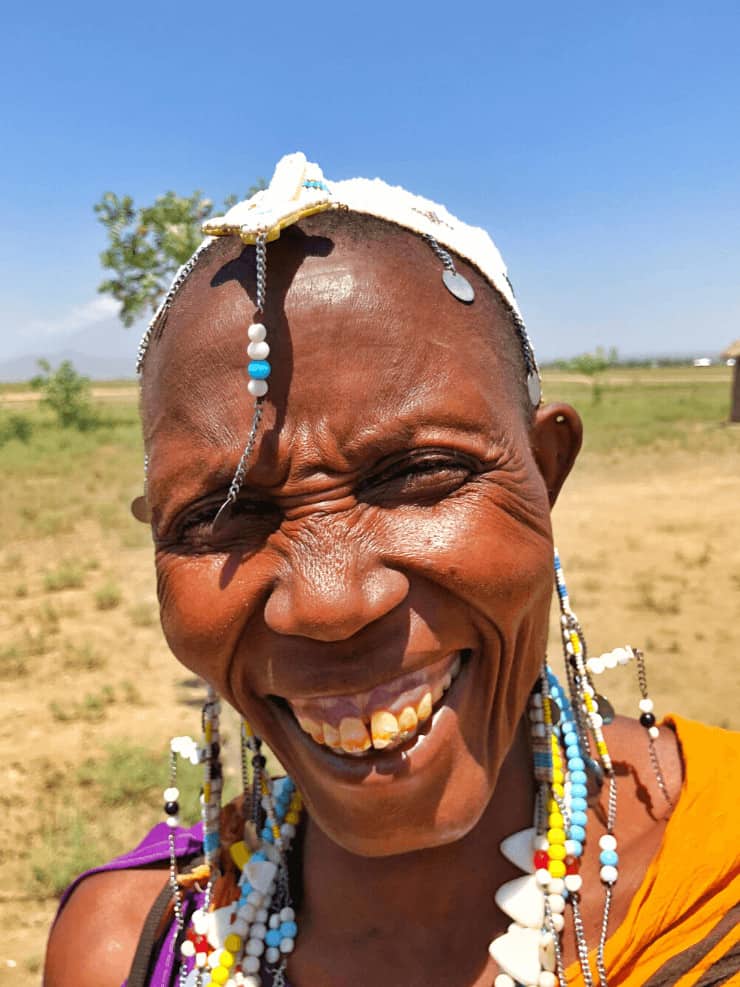 On my first trip to Africa, I visited a small family group of the Mang’ati tribe, a pastoral people who I met through a friend who runs an NGO in Tanzania. This was not a paid or tourist trip. We were simply invited round and ended up having an amazing afternoon.
The problem is that most people want an authentic experience, but also want to see rituals, celebrations and dances as well as everyday village life, but realistically, unless you go and live in or near a village for an extended period of time, you won’t get that.
At the end of the day, any village that opens itself up to tourists will have an element of the staged about it. And to be honest, I don’t think there’s anything wrong with that, as long as the village wants you there, it’s not detrimental to them and you are respectful of their culture.
So now I’m super careful about the tribes I visit on my tours and I take my groups to villages where I have built up a relationship, as I don’t want my clients to have an experience like I did in the Ngorongoro village.
On my first trip to Africa, I visited a small family group of the Mang’ati tribe, a pastoral people who I met through a friend who runs an NGO in Tanzania. This was not a paid or tourist trip. We were simply invited round and ended up having an amazing afternoon.
The problem is that most people want an authentic experience, but also want to see rituals, celebrations and dances as well as everyday village life, but realistically, unless you go and live in or near a village for an extended period of time, you won’t get that.
At the end of the day, any village that opens itself up to tourists will have an element of the staged about it. And to be honest, I don’t think there’s anything wrong with that, as long as the village wants you there, it’s not detrimental to them and you are respectful of their culture.
So now I’m super careful about the tribes I visit on my tours and I take my groups to villages where I have built up a relationship, as I don’t want my clients to have an experience like I did in the Ngorongoro village.
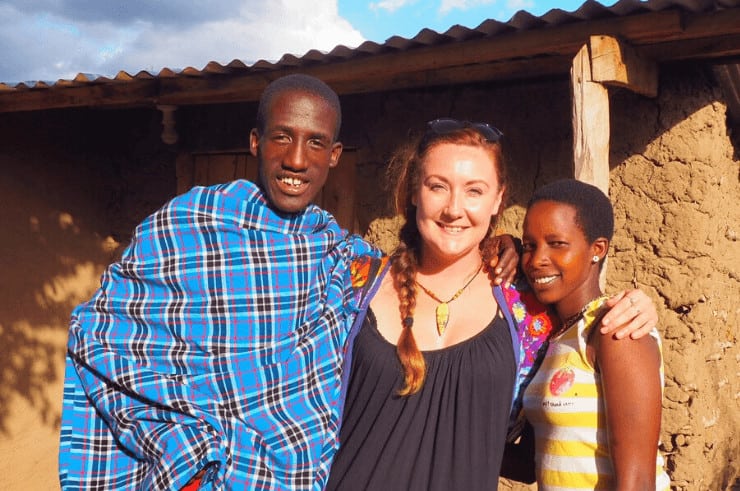
Change is Inevitable
But the thing that always strikes me the most is that whilst every tribe is very different, they are often facing very similar issues. Let’s look at the Maasai who live in Kenya & Tanzania. A semi-nomadic people, the Maasai have endured the harshest of conditions. But the outside world is encroaching in on them. More and more land is now privately owned and indigenous people become displaced for tourism (mostly game reserves and luxury hotels) or to make way to build roads and for other reasons.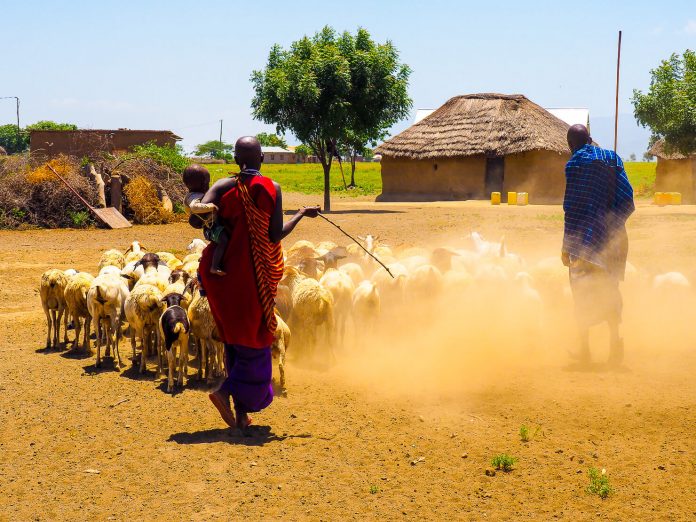 Being semi-nomadic, they are not farmers by tradition. Maasai diets consisted of raw meat, raw milk, cattle blood and occasionally fruits or vegetables. But today, more and more of their traditional land is becoming privately owned and they are forced to become more permanent rather than nomadic. This means that their cattle, goats and sheep don’t have the space they need to graze. Disease amongst the livestock has also been an issue.
As a result, Maasai diets have changed over the years and their staples are maize porridge (ugali) and milk, with more vegetables in the diet.
Tourism and development are having a dramatic effect on Maasai culture. This is a common problem not just for African tribes, but for tribes all over the world.
So I don’t really blame the Maasai I met in the Ngorongoro Crater for the way that visit went. They’re becoming desperate and they need to survive in a modern world because their world is changing and they have little control over it.
Being semi-nomadic, they are not farmers by tradition. Maasai diets consisted of raw meat, raw milk, cattle blood and occasionally fruits or vegetables. But today, more and more of their traditional land is becoming privately owned and they are forced to become more permanent rather than nomadic. This means that their cattle, goats and sheep don’t have the space they need to graze. Disease amongst the livestock has also been an issue.
As a result, Maasai diets have changed over the years and their staples are maize porridge (ugali) and milk, with more vegetables in the diet.
Tourism and development are having a dramatic effect on Maasai culture. This is a common problem not just for African tribes, but for tribes all over the world.
So I don’t really blame the Maasai I met in the Ngorongoro Crater for the way that visit went. They’re becoming desperate and they need to survive in a modern world because their world is changing and they have little control over it.
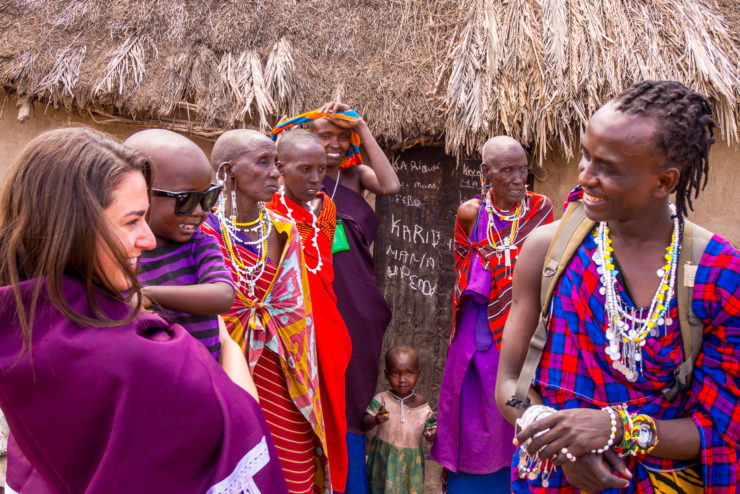
A Money Economy
Trading cattle isn’t always a relevant currency in the outside world and many Maasai don’t know how to manage livestock for making money, only using them as a sign of wealth. Opening the village for tourism allows tribal people to generate vital income that can pay for food, life-saving medicines, and education. As Western culture spreads more into traditional African cultures, along with the bad comes the good. I think it’s important to keep traditional cultures alive as there is much to be learned from them, but there are certain practices that I would not be so sad to see go. Not that I’m in any position to judge what another culture does, but without outside influences and education, dangerous practices such as Female Circumcision (FGM) will never be phased out. This is illegal in both Kenya and Tanzania, but is still widely practiced in both countries and elsewhere in Africa. Lack of education also leaves people more vulnerable to being taken advantage of. However education is becoming more widespread in Maasai culture and there are plenty of Maasai are doing very well for themselves economically. There are even Maasai in government in Kenya, which can only be good for the tribe, to give them a voice that they might not have otherwise. But… the Maasai are far more advanced in this sense than a lot of other tribes.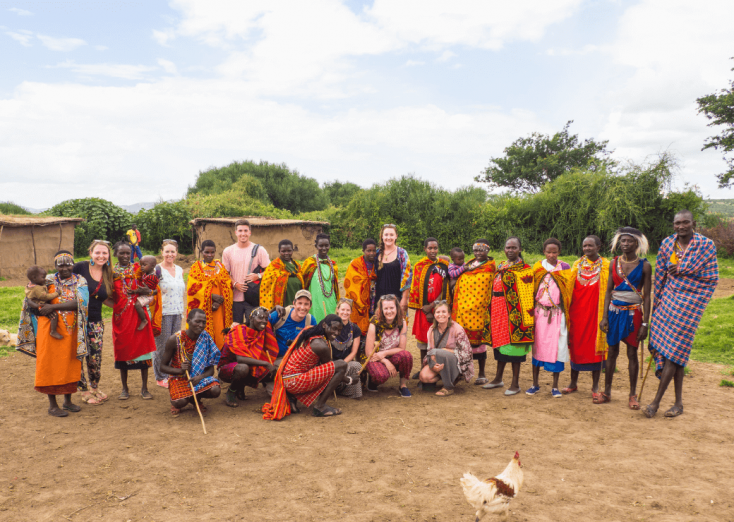
What’s the Alternative?
Tribal people are facing a tougher time than ever before but years of practiCe have made them resourceful and they are finding new ways to survive. Some Maasai have started farming and now grow tea and other crops, but droughts and unpredictable weather are common and make this difficult. In other areas farming is impossible due to the wildlife, who destroy crops. Without ways to sustain themselves in the villages, many tribal people are forced to move to towns and cities. A lot of the men work as security guards, but this takes them away from their families and others struggle with lack of education and social skills to survive in the city. Opening the village to tourism is often the better option to keep families together. It’s sad but true that many tribal communities now depend on tourism. Yet it’s tourism and development that has created the most problems. This is echoed around the globe. It may not be ideal, but perhaps in some ways, tourism is helping to preserve traditional cultures, by allowing people to earn money when they might not otherwise be able to do so. In the case of the Umoja Women’s Village in Kenya, tourism has allowed these Samburu women to escape from abusive husbands and a patriarchal society by opening up their own co-operative that tourists can visit. This allows them a safe haven, freedom and, independence.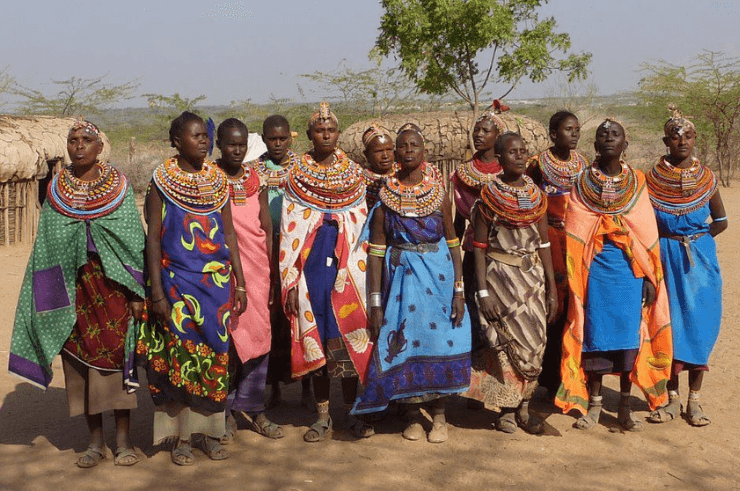
Corruption & Exploitation
There was one occasion when I visited a tribe and things did not go so well. A few of us had organised a trip to go to a Twa village in Rwanda. A driver picked us up in a jeep and drove us into the countryside outside of Ruhengeri, on the same day we’d been gorilla trekking in the Volcanoes National Park. We were shown around the village, we danced, we made music, I used all my strength to fight my maternal instincts when I saw small children literally playing with fire, we pulled silly faces with the kids”¦ We were made to feel extremely welcome and it was a lot of fun. But as we were leaving, an argument broke out between the villagers and our driver. They were angry about something but we didn’t know what as we couldn’t understand what they were saying. The driver got in the car and we drove off. It wasn’t until later and I’d spent more time in Africa that I figured out why. I can’t prove it, but I’m pretty sure the argument was over money. Had the driver ripped them off? Probably. I’ve since found out that it is common for this to happen. The problem is not just tourism or development, the problem is exploitation from all angles. If the tour operators keep a large cut of the money, villagers end up putting pressure on tourists to buy souvenirs at ridiculous prices to make money rather than doing a good tour of the village, which is now putting tourists off visiting. It’s a vicious circle. In Namibia, it’s common for tour companies to visit the Himba. But you should be aware, that some of those tour companies visit villages where the land they live on is not owned by them, usually part of a farm, but they are allowed to live on it for free. Some of the money may be given to the Himba but the majority won’t.
I’m not saying don’t go to visit the Himba, but just be aware that’s what happens and do your research before you spend your money.
If you want to visit the Himba independently, I’d suggest going to Opuwo in northern Nambia. It’s a bit off the main tourist trail, but Opuwo and further north towards Angola is where the Himba traditionally live. You can arrange tours via the Kaoko Information Centre.
In Namibia, it’s common for tour companies to visit the Himba. But you should be aware, that some of those tour companies visit villages where the land they live on is not owned by them, usually part of a farm, but they are allowed to live on it for free. Some of the money may be given to the Himba but the majority won’t.
I’m not saying don’t go to visit the Himba, but just be aware that’s what happens and do your research before you spend your money.
If you want to visit the Himba independently, I’d suggest going to Opuwo in northern Nambia. It’s a bit off the main tourist trail, but Opuwo and further north towards Angola is where the Himba traditionally live. You can arrange tours via the Kaoko Information Centre.
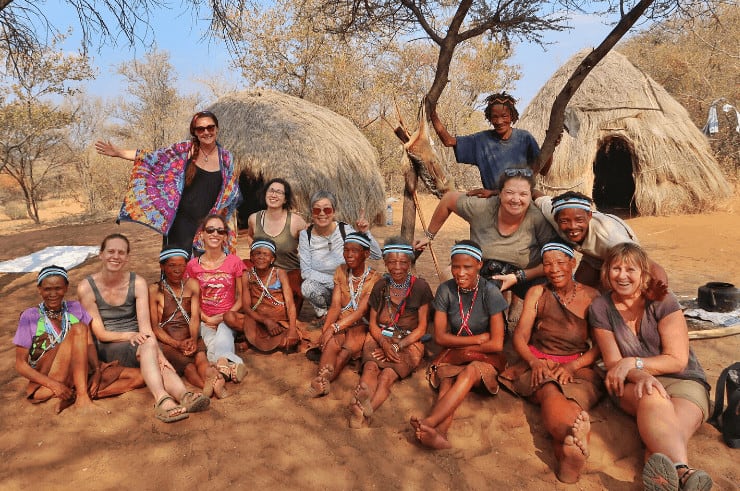
Things to Consider Before You Visit an African Tribe
Tribal visits provide vital income to help tribal people survive in today’s world. When you’re planning a visit, the most important thing is to ensure that the people you are visiting are treated fairly and that you do not contribute to the exploitation of already vulnerable people.- Ensure that you are visiting a tribe that is happy to have tourists in their village.
- Do your research and if booking through a company or lodge, make sure it’s one that works with and supports the village and does not exploit them.
- If you are organising your own trip with a driver, negotiate a separate price with the driver for his part and give your money directly to the village chief and do it in front of the rest of the village if possible.
- Go with the mindset that this is a mutual learning experience. Ask questions and share things with them – do not just be a voyeur.
- Ask if you can take photographs. Most people who open their village to tourists will be more than happy to let you take photographs, they are proud of their culture, but it’s always nice to be asked.
- Read up on the tribe you are visiting and be aware of any culturally sensitive issues.
- Be respectful – you’re in someone else’s home.
- Enjoy the experience and be open-minded.
Recommended Companies
This is a list of companies that I can personally recommend for their ethical tours, who either I or a friend have travelled with. I will continue to add to this. If you know of any great companies that support indigenous people through tribal visits and other projects, please let me know in the comments below.- Kobi Farm (Kenya): Run by friends Moses and Laura (who used to own Mara Explorers Camp). They support the Ole Keene Maasai village and also support a number of other initiatives in the village including school sponsorship and a school breakfast programme.
- Umoja Women’s Village (Kenya): Run by women of the Samburu tribe, Umoja Village is a women’s refuge and co-operative. They offer tours of their village and you can book directly through them.
- Unity Women’s Village (Kenya): Similar to the Umoja Women’s Village, the Unity Village is also run by women.
- Il Ngwesi Lodge (Kenya): An eco-lodge in Kenya run by the Maasai themselves. Read reviews on Tripadvisor.
- Maji Moto Maasai Cultural Camp (Kenya): A Maasai run camp and social enterprise.
- Dqae Qare San Lodge (Botswana): I love staying at this San-owned lodge in Botswana.
- Kunene Conservancy Safaris (Namibia): An ethical tour company with a number of Himba shareholders. They also include stays at Etaambura, the first Himba-run lodge.
Have you visited an African tribe? How was it? Please leave your thoughts, suggestions and comments below!

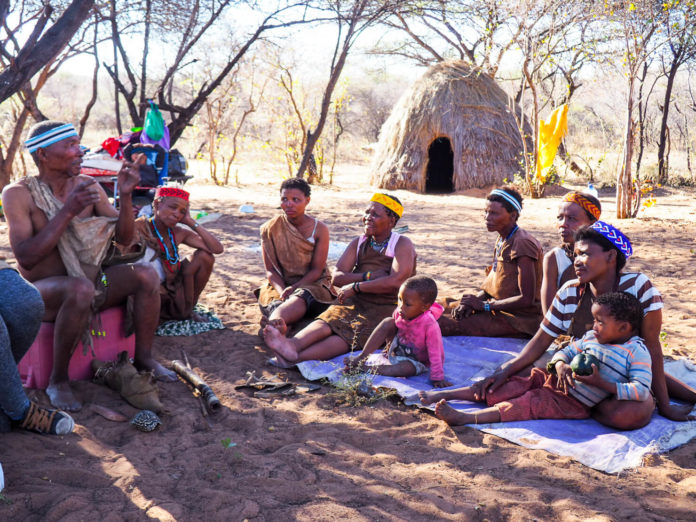
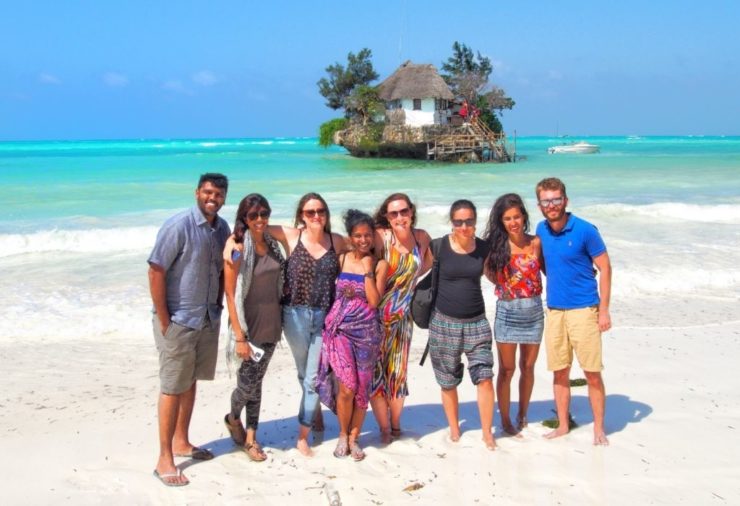
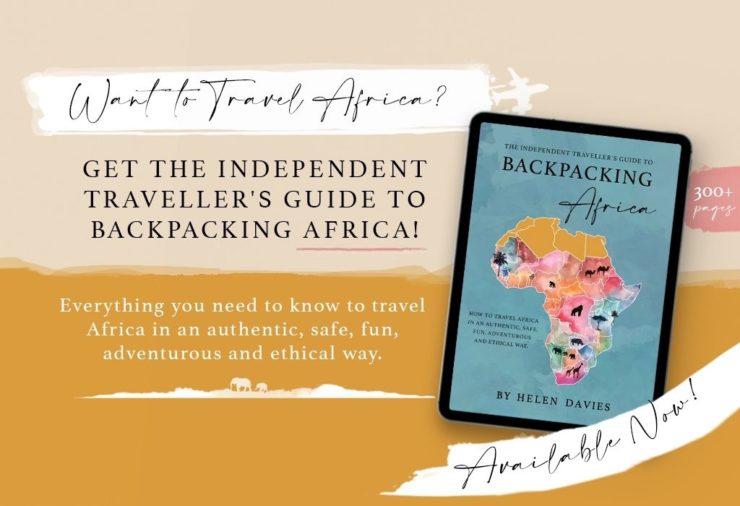

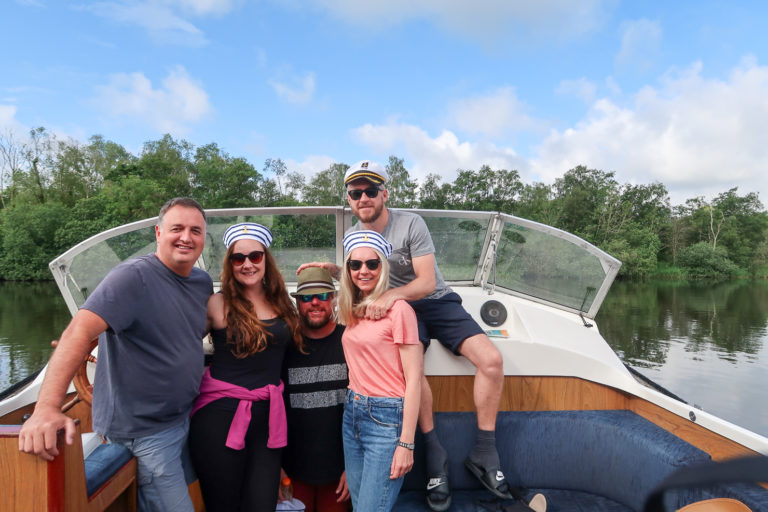
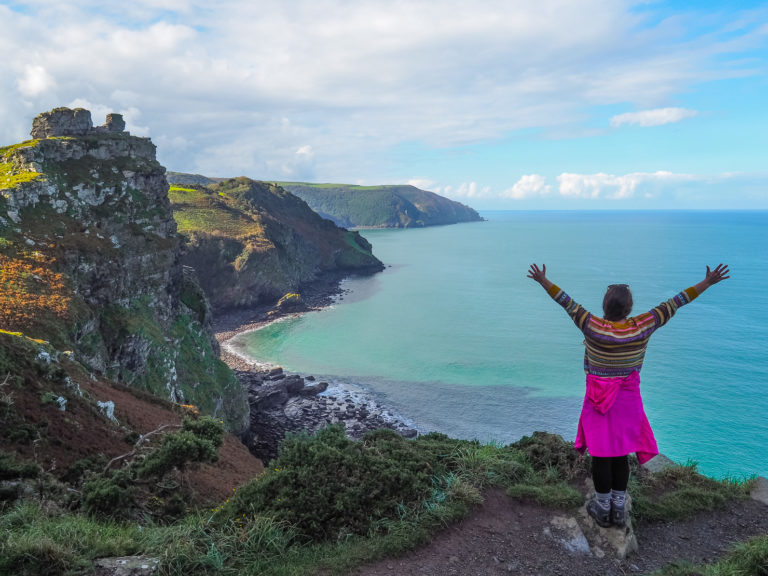
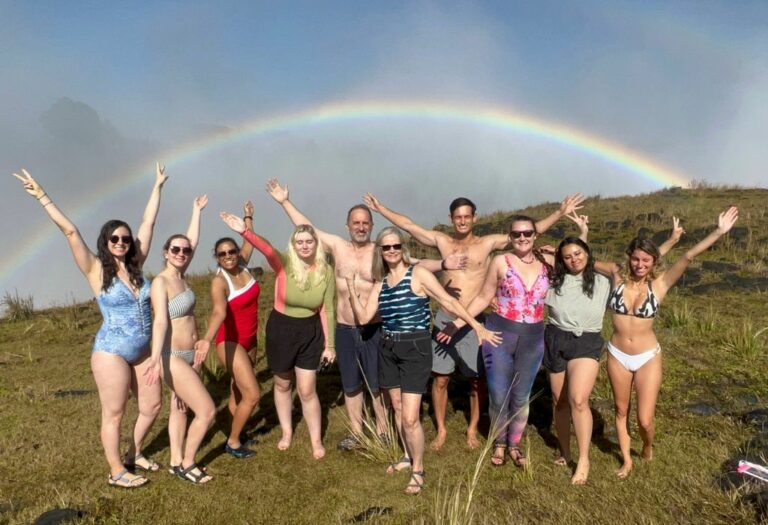
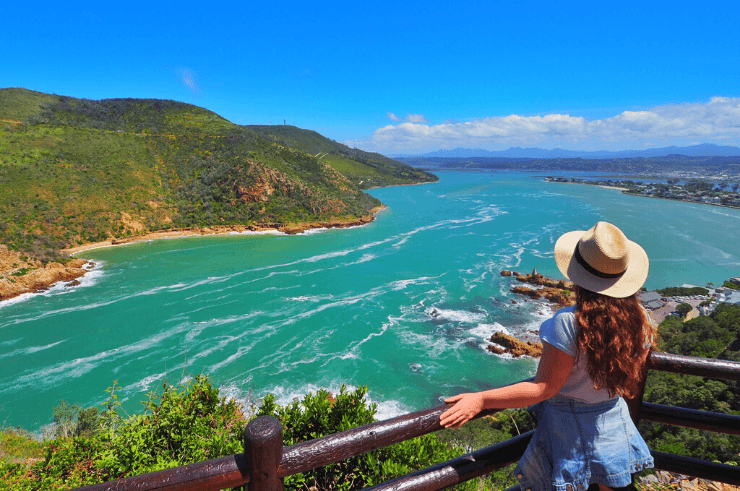
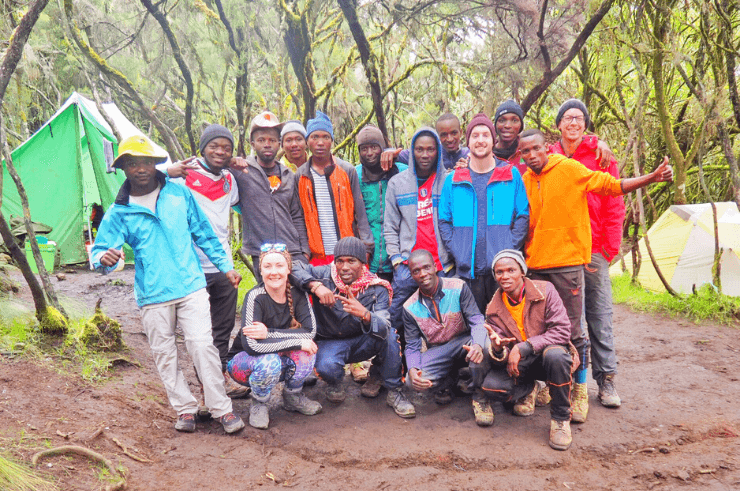
This is a hard topic, and I think you covered it nicely. I wonder sometimes if these people ever feel like they’re selling their dignity. I mean, it’s one thing to share your culture with others, but quite another to sell it as if it were a circus act, and there’s a fine line there somewhere. I can’t help thinking of Omo valley where, apparently, the local tribes-people have taken to asking for money in exchange for photographs. I think the most important thing, as ever, is to be careful where your money is spent and show basic respect. Which is, of course, pretty much what you said.
Thanks Rebecca. It’s a difficult topic to write about as it isn’t a clear cut and there will be some people within each trbe that resent having to open the village to tourists. But like I say, sometimes it’s a better alternative… for now anyway. Who knows what the future will bring. The world is changing, tribal people are changing with it.
Every tribal person that I’ve met on my travels (and I’ve haven’t been everywhere… yet) has been very proud to show me their culture. But visiting a Maasai village is very different from say visiting the Jarawa Tribe on the Andaman Islands, who have been subjected to quite horrendous treatment from people using them as a human safari which is quite frankly disgusting!
I’ve been stopped in the street in Africa and Asia by people who’ve asked me to take their photo and then they demand money afterwards. But, I don’t blame them really.
Yeah, it just has to be handled carefully. I just can’t help thinking there are other tourists and other tour operators who are less respectful, but you can’t really control those people and like you said, the world is changing. It’s a little sad to see the traditional cultures disappearing, especially when a lot of problems in Africa are caused by the interference of the West, but it’s the way the world’s always been. Cultures mingle and learn from each other and change, and it’s how innovations are spread. Still it’s happening quite fast in these days of technology. The cultures probably won’t disappear completely, just adapt to the modern world, with some things carried on.
Bah I don’t really know what I’m rambling on about. I hope that makes some sense; I just woke up.
Makes perfect sense Rebecca. As they say, change is the only constant in life.
Aside from full on campaigning, the best thing we can do as tourists is to ensure we choose good companies. It’s not easy and requires a bit more effort than just going with the flow… but hopefully I’ve given people something to consider! 🙂
Thanks Helen. You’ve given us a lot to think about!
Thanks Lance! Hope this has been helpful!!
Very interesting and thought-provoking article. I was discussing a future trip to East and Central Africa with a friend of mine from Senegal and she was quite shocked when I suggested visiting the Maassai tribe in Kenya. She is 100% African and is against this “human tourism” that is taking place in some parts of the continent and yet, we all agree that if it wasn’t for tourism, the tribes would be extremely poor.
And while it is a noble quest to ensure the cultural integrity of the tribes, it is very elitist for us to say that “they shouldn’t use iphones! They’re loosing their cultural identity”, I wouldn’t be surprised if the Maassai started wearing denims and cowboy boots in some 20 years and we all need to understand that they are absolutely free to do so, it is their right.
Hey Raphael! I totally agree. I’ve spoken at length to friends, both African and non African about this. It’s a really difficult subject and I don’t think there will ever be one answer.
I love to spend time with tribes people as I find it interesting to learn about other cultures. But in the same way, I’ve visited lots of villages that aren’t specific ‘tribal visits’ and they are just as interesting. Either when I’ve been working in the village or town etc. But I’d be just as interested whether they’re from Africa, Asia, South America, North America, Europe… any culture really! I think it’s natural to be curious. Whenever I’ve visited a village, it’s always been a two way process.
But I think if the tribe are happy for you to visit and spend time with them and they are treated fairly by whoever has arranged the visit and with respect that it’s ok to go. That’s just my opinion. But if the tribe do not want visitors then people shouldn’t go.
Interesting topic. On my tour of Namibia we stopped at a Himba village. THey showed us their housing, their farming and the women customs…
And although we had a few true great exchanges with some of the women, especially about the very long hair of one of the tour member, the experience was too played… the women were all in traditional clothes while the men were walking around in modern sport clothes… I kept reminding myself that at least the money was going to help them maintain the orphanage (I am still hoping that part was true).
Hey Claire. It depends where you went really. A lot of tour companies stop at villages that are on land owned by farmers. The Himba are allowed to live on the land for free, but they see little of the money, although the owners do say they help them out with medical treatments etc… who knows? These villages are still real villages, but they don’t have as much control.
The best place to visit the Himba is in Opuwo in the north, as there are lots of villages there and they own their own land etc. This may have been where you went? There’s an orphan village there. What company did you go with?
Many men have adopted more western dress… but the women I met seemed to enjoy their traditional dress. The reason there wasn’t many men about might be because they were out looking sfter the herds. Or I’ve heard rumours of problems with alcoholism amongst Himba men… but I haven’t any facts to back that up, just hear’say.
No doubt the orphanage benefitted somehow so don’t worry! 🙂
This is a great article and definitely opened my eyes to a lot of things. I don’t know if the ‘costs of travelling’ article you mentioned was mine, but the one I wrote was meant to do the same thing as your post has done: bring awareness to issues that people don’t consider when they take these types of trips.
I think it’s awesome that you were invited into different communities and I hope then when I visit countries in Africa, I will get the same welcoming!
You’ve really given some great tips, and thanks for the resources! I think it’s important to use sustainable and ethical tour companies so it’s good have a list from someone’s personal experience.
Hey Alyssa! It was your article I was reading, and you’ve just reminded me that I hadn’t linked to it!
Thank you, glad you got something out of it. It’s such a tricky subject to write about, but people need to be aware of it. I wasn’t when I went the first time.
I’m sure you will get the same welcome! 🙂 x
You have handled this topic really well. When we went to see the long necked women, the Karen in Thailand I felt much the same as you. It is very much a catch 22 situation. I think your points to consider are well said. As you have said, and I agree – a tricky situation.
Thank you! It took me a while to write, trying to put across the the point in the right way, especially as a non African. Issues like these crop up wherever there are tribal people, some people are hit much harder than the Maasai also. I didn’t go to visit the Karen people, but I’d heard similar things to this. I don’t know what the ‘solution’ is, and it’s difficult to control if you’re on a tour, but I guess the best thing is to make informed decisions and hopefully the corruption will stop over time!
It was beautiful. Liked it. Luck.
Thank you.
Hi Helen,
I just finished reading your guest blog from Nomadic Matt’s site. I was hungry for more so I came here to read your other stories. It’s great to see that you’ve visited some authentic Maasai villages. I like the thoughtfulness of your writing. Yes, choosing an ethical company is very important, as indigenous people are often exploited. I would like to add that village chiefs can also be deceptive at times as they tend to speak a few words of English so they might take advantage of villagers who don’t. If you can, giving some money directly to the village mamas would help. You’d have to be tactful about this, of course. Also, I’d recommend not to give money or gifts to the Maasai children you see along the way on safari. There’s a tendency of them rushing to tourists and begging for money instead of going to school. I think cultural exchange can be wonderful, you just need to be sensitive about it.
Thanks Mzuri, that’s so lovely of you to say!! Yes, you’re right! It’ really difficult to make sure that people benefit equally from the visits and completely agree, never give the kids any money. It’s really difficult to see the kids begging, but people need to not do it!
“As Western culture spreads more into traditional African cultures, along with the bad comes the good.”
I think this sums up your article pretty well. This tourism is a result of the ever-increasing globalization we are living through right now. It’s not necessarily a good thing, not necessarily a bad thing. It’s not something that can be stopped, really. But it is good to be aware of some of the problems that can arise.
This post definitely hoped to alleviate some ideas I had about exploitation and such. I will definitely look into doing something similar to what you did because it seems that you mostly had great experiences and I’m sure you learned some valuable things!
Great and important post!
Thanks so much Matt! So true, change and globalization are just inevitable, so I guess it’s just about how we deal with them responsibly.
It’s really difficult to know exactly when the people are being exploited or not, especially as a tourist. Even when you live and work there, it’s still difficult. As Mzuri says above, even within the village people can be exlpoited too!
Hope you get to go and visit too and thanks for listening to my advice! Give me a shout if you need any more info. I’ll be back in East Africa towards the end of the year so hoping to do a bit more research into companies then as well.
Well said, Matt! Changes are inevitable. Nowadays it’s mobile phones and internet. Back in the 60s, it’s the red shukas. The Maasai were still wearing hides until the Chinese brought over the red fabric. Environment changes. Culture and lifestyles change. It’s an inevitable part of human evolution. The savannah the Maasai depend on to raise their cattle is disappearing. Every year, more and more grassland turns into desert. It is no longer possible for all Maasai to live as subsistence pastoralists like they used to. “It’s not necessarily a good thing, not necessarily a bad thing. It’s not something that can be stopped, really.” C’est la vie!
these villagers have a simple lifestyle, but we see that they are happy.
I think having a simple life is the key to happiness!
Fascinating and insightful post, thanks! Your photos exude so much happiness! I would love to go on a tribal visit.
Following you on Twitter so hopefully connect there sometime!
Thanks Selina! I’d recommend people to visit a tribe! Just make sure that the tribe are happy and reaping the benefits from it, and not being exploited and then it’s win win for everyone. Many tribes are really happy to show you around.
I have been lucky to see lots of villages when I worked in Africa, as I was visiting remote schools. They weren’t tribal visits as such, more of an informal tour. Hope you get to go soon!
It’s a shame you don’t have a donate button! I’d most
certainly donate to this excellent blog! I suppose for now i’ll
settle for book-marking and adding your RSS feed to my
Google account. I look forward to new updates and will talk about this site with my Facebook group.
Talk soon!
I’m extremely interested in visiting and exploring Africa. I have never been out of the box USA and at the age of 50 I have an insatiable desire to see the world! And, your insight here has presented an amazingly optimistic view. I’m also curious of what an experienced traveler does to navigate a cost sensitive tour-in that I am a novice and more accurately a dreamer. Lol Thanks for the inspiration.
Hey Terry, thanks for your message! I love that you are wanting to explore the world! Go you!!!
The world is an amazing place and I love exploring it! If you arrange things locally, it’s pretty easy to get things at a good price! If you are thinking of going on a trip and want some help, just give me a shout!
Hi, have you managed to explore any other countries.?… mark
I was on this trip! All of these tribes are my family. Beautiful photos!
Thanks Michelle!
Thank you for posting this, I had a question for you, do you think that instead of giving the chief money, it would be accepted if we brought raw meat for the tribe?
Hi Marlena, to be honest, I’m not sure. I guess it would depend on what tribe you were visiting…. What meat would you bring? Where would you be bringing the meat from? Would you be bringing enough for the whole tribe? If you are going to visit a particular tribe, I’d ask the people arranging the visit for you.
Great read, thanks Helen. I came across this when I was researching a visit to a Himba tribe. I have visited with tribal and indigenous people in other parts of the world, like you both organised and not and share your views on this subject. I get really cross with people taking pictures without asking, but try to politely remind them of how they might feel if this was reversed! Will head out to try to organise a visit independently!
All important vital things to think about. Personally I hate being part of a tour group and would rather go solo. I have found this to be the best way to have authentic contact, learn about cultures yet the feeling is less one of exploitation and rather just one of sharing a common bond between people. Thanks for a great post you certainly covered the issues that need to be thought of as conscious travelers.
Thanks Peta! It’s really hard with a tribe and doing ‘authentic’ organised tours is very difficult! Thank you for reading and glad you liked the post.
ps. Just seen your Sri Lanka posts! I am heading there in May so will pick up some tips!
This is just remarkable. I felt like I was on the trip with you and the beautiful pics were perfectly placed with the story. Excellent post, thank you so much, I enjoyed it almost as much as you did. Lol
In Ethiopia, we ventured out and visited the Mursi and Hamer Tribes in the Omo Valley. This was incredibly rewarding, interesting and something we still contemplate to this day. For the adventurous who are interested in culture in Africa, this is an experience you absolutely should not miss.
Hi David,
Wow, I would absolutely love to do that! I saw the Bruce Parry Tribe documentary where he visited the tribes in the Omo Valley and it was one of the things that inspired me to travel to Africa in the first place! I look forward to reading about your experiences! Ethiopia is definitely on my list to visit soon!
Thanks for the article although we went to masai Mara and as u recommended the village,we had completely different experience then sustainable or ethical. They danced for us, from the beginning started putting their things (sticks and cloths) to our hands starting to odder it as souvenir. They showed the local house fast and then pushed us to the local place with the souvenirs. In extremely violent way they intended to sell as much as possible while all village surrounded us and watched every movement in the vision of financial gains. I understand they r financially poor but the recommendation of visiting this place is nonsense. We didn’t learn anything about the culture except they like to sell things to white people. If I can recomend, much more enriching is taking motorbike, ideally with some person speaking their language and visiting random village outside of tourist places and cities… It’s for free, nobody asks anything, they r hospitable and not ruined by this crazy capitalism
Thanks for the amazing post, Helen. I stumbled upon this looking for info on visiting African tribes, and it was interesting to note you’re from Liverpool as well (same as me)!
Enjoyed reading all your stories and assimilating all the valuable information on the blog. Keep up the great work!
Adam
Jambo dada! You made an excellent overview of the whole matter. I just wanted to congratulate you on that. Asante!
We are joining a humanitarian group that drills water wells in villages (WHOlives). Since we will be visiting several villages, I’d love to know the best way to interact with the children. Is there anything we could bring from America as a gift for the children? I’ve thought of maybe bubbles, school supplies like pencils and paper, or perhaps small stuffed animals?
Hi Hope,
My advice would be not to give anything out to the children in the villages directly, as it perpetuates the idea that foreigners give handouts, which is not a good thing. But you could see if there’s an organisation you could donate things through in the area. There will be some and the humanitarian group you are volunteering with may be able to suggest an organisation, or help you do it and some good things to bring (not sweets). If not, I’d suggest looking up https://www.packforapurpose.org/ – who do this very thing in an ethical way!
Hope that helps and have a great trip to Africa!
Helen